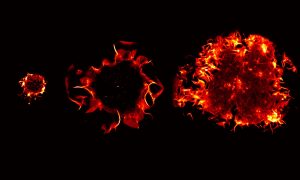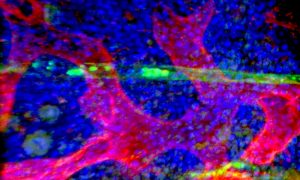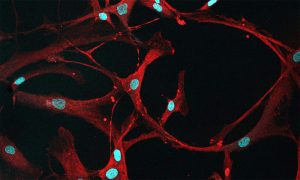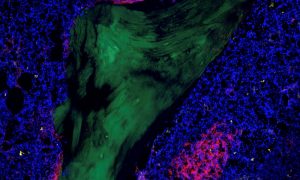19 November 2025

New research suggests that inflammatory support cells play a key role in damaging bone marrow early in cancer development – potentially offering a new target for treatments that stop blood disorders before becoming cancerous.
SCIENCE & TECHNOLOGY
5 August 2025

Scientists identified individual stem cell-like cells responsible for leukaemia relapses in kids and precisely characterised their molecular properties.
SCIENCE & TECHNOLOGY
20 March 2022

Judith Zaugg, Group Leader at EMBL Heidelberg, has been awarded an ERC Consolidator Grant of €2 million funded under the European Union’s Horizon Europe research and innovation programme. Over the next five years, the grant will enable her group to study cellular interactions in the human bone…
EMBL ANNOUNCEMENTSLAB MATTERS
2022
embl-announcementslab-matters
15 September 2021

A research collaboration used machine learning to map tumour molecular make-up, potentially paving way to more customised cancer treatment.
SCIENCE & TECHNOLOGY
2021
sciencescience-technology
18 May 2021

The EMBL Picture of the Week features a series of Jurkat T cells during different stages of the activation process.
SCIENCE & TECHNOLOGY
2021
picture-of-the-weekscience-technology
2 March 2021

A new method has the potential to boost international research efforts to find drugs that eradicate cancer at its source.
SCIENCE & TECHNOLOGY
2021
sciencescience-technology
24 November 2020

Studying cancers means also knowing what healthy cells look like. In this case, mesenchymal stromal cells (MSCs) from healthy bone marrow are a bit ‘loopy’.
SCIENCE & TECHNOLOGY
2020
picture-of-the-weekscience-technology
11 March 2020

The Heidelberg-based LeukoSyStem consortium investigates leukaemia stem cells in acute myeloid leukaemia. The German Federal Ministry of Education and Research financially supports this collaboration between Heidelberg University Hospital, HI-STEM gGmbH, the German Cancer Research Center and EMBL.
EMBL ANNOUNCEMENTS
2020
embl-announcementsscience
8 April 2008
Leukaemia – cancer of blood or bone marrow – is caused by mutations that allow defective blood cells to accumulate and displace healthy blood. To devise effective therapies it is crucial to know which mutations cause leukaemia and which cell type gives rise to leukaemic cells. Researchers from…
SCIENCE & TECHNOLOGY
2008
sciencescience-technology







